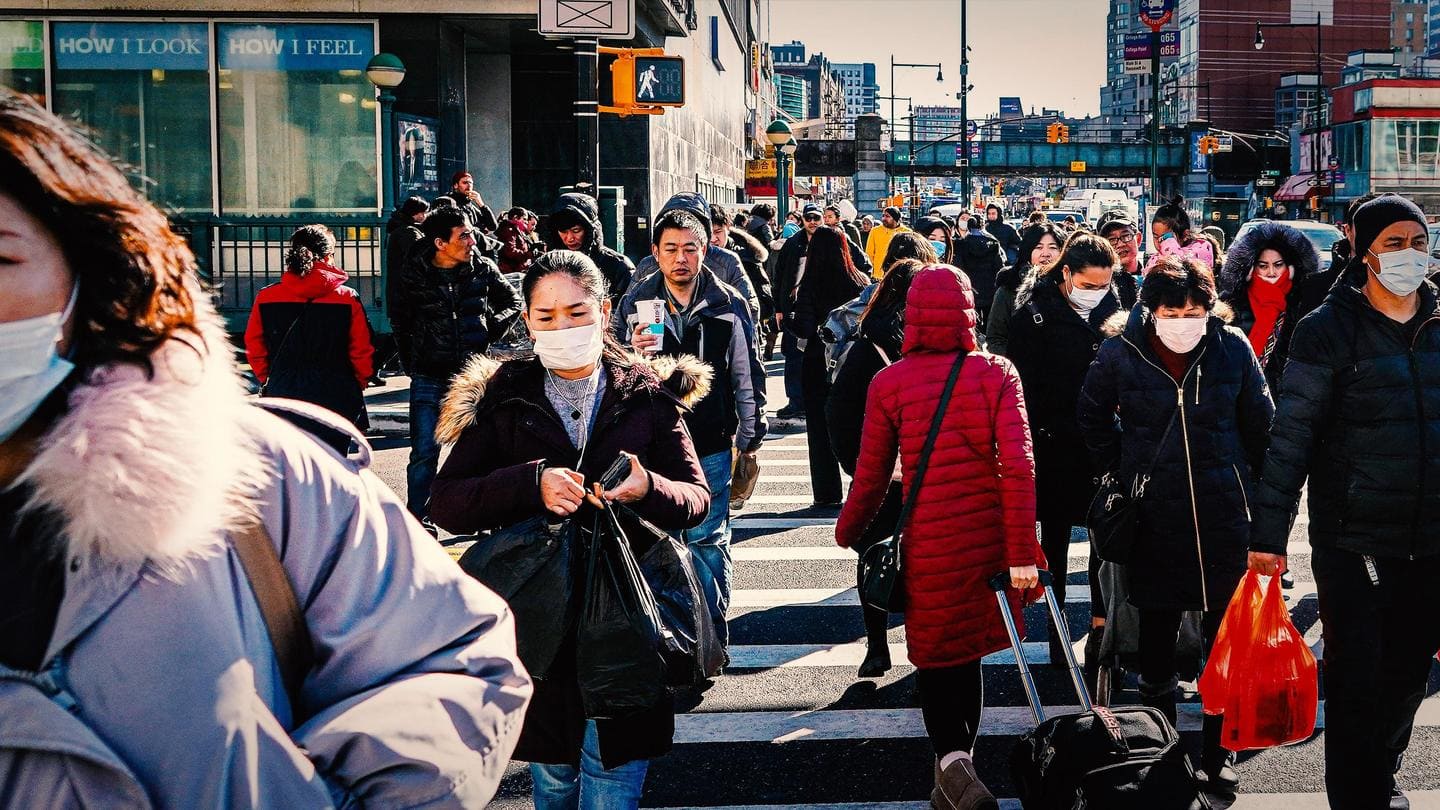
Is COVID-19 becoming an endemic? Here's what experts say
What's the story
The United Kingdom has done away with the mandatory isolation for people with COVID-19 as part of a plan to live with the virus. Similarly, California has also adopted an endemic approach, which focuses more on watching out for new variants and reacting quickly to outbreaks rather than issuing mandates for masking indoors. Here's what an endemic stage of COVID-19 will look like.
Details
What does endemic stage mean?
An infection becomes endemic when its rate becomes static in a particular geographic location, with no major outbreaks. "Endemic means that the virus will continue circulating in the population and there will be periodic ups and downs when the conditions are favorable to the virus and less favorable to humans," said Dr. Pramod Garg, director, Translational Health Science, and Technology Institute (THSTI)-Faridabad.
Expert
Herd immunity needed for endemic
A disease can only be called endemic if a majority of people have immunity against the virus through previous infection or vaccination, said Dr. Amit Singh of the Centre for Infectious Disease at the Indian Institute of Science-Bangalore. He, however, maintained that a "neutralization study" would be needed to see whether these antibodies can effectively protect against the current variants.
Information
When will COVID-19 become an endemic in india?
Even though the number of COVID-19 infections is declining in India, experts say they cannot give a deadline on when it will become endemic. It will depend on the number of susceptible people in the population, vaccination rates, and the emergence of new variants.
Endemic
Disease can be an endemic but still deadly: Experts
A disease becoming an endemic doesn't mean it will become harmless, experts said. In an editorial in Nature, Oxford University professor on viral evolution Dr. Aris Katzourakis argued that endemic doesn't mean the evolution has somehow tamed a pathogen, citing the example of fatalities by malaria and tuberculosis in 2020. "A disease can be endemic and both widespread and deadly," he added.
Quote
'Endemic doesn't suggest stability'
Citing the example of the US measles outbreak in 2019, Katzourakis further said that becoming an endemic also doesn't "suggest guaranteed stability." "There can still be disruptive waves from endemic infections," he added.
Variants
Researchers worried about new variants
Meanwhile, researchers are also worried about the emergence of new variants of coronavirus. An article in Nature about the future of COVID-19 expressed concern over "the sky-high circulation of the Delta variant and the rise of Omicron." The article further argues "inequitable vaccine roll-outs to lower-income countries and minimal control measures in some wealthy countries" offers fertile ground for the virus to evolve more.
Information
Does endemic mean end of all control measures?
Even though experts have favored the easing of restrictions, they stressed the need to increase testing and genome sequencing. While testing can help to know whether infections are going up or down, genome sequencing helps to identify new variants, experts said.
Precaution
'Precautions should remain in place'
Experts have maintained that the precautions should remain in place. "What's the hurry to remove restrictions? If we live with the new normal, we will be protecting the economy as well," said Dr. Rakesh Mishra, former director of Centre For Cellular And Molecular Biology. He also expressed apprehension that withdrawal of precaution may lead us to "fall into the ditch of a new variant."
Concerns
Too soon to declare COVID-19 as endemic?
Experts also questioned the move to declare COVID-19 as endemic, saying this would lead to a situation where fewer resources will be made available for measures such as vaccination. "There's a vaccine inequity; not all countries are vaccinated. If the disease is declared endemic, then the 10% vaccination rate in some countries will remain 10%' nobody will take care of that," said Dr. Singh.